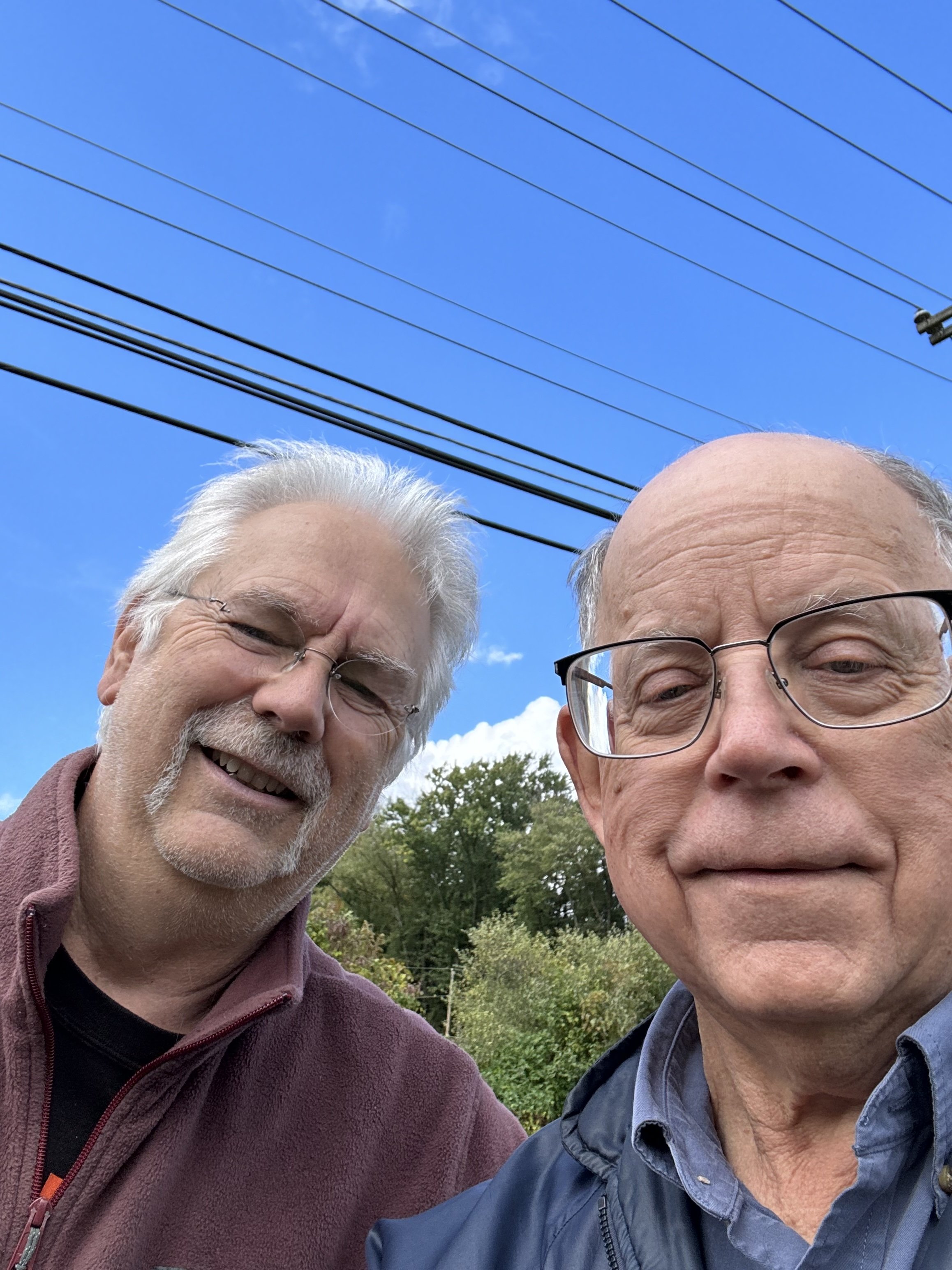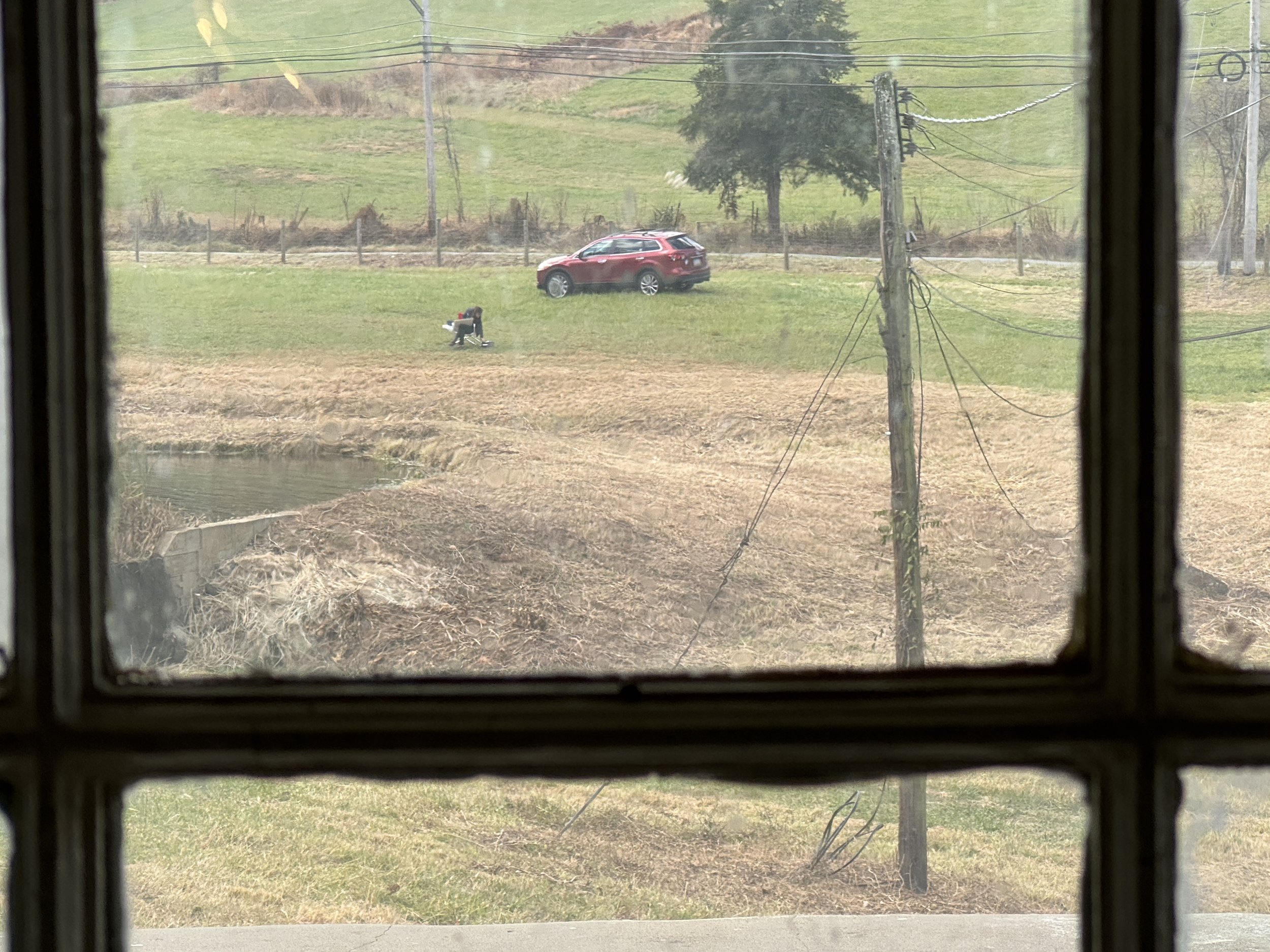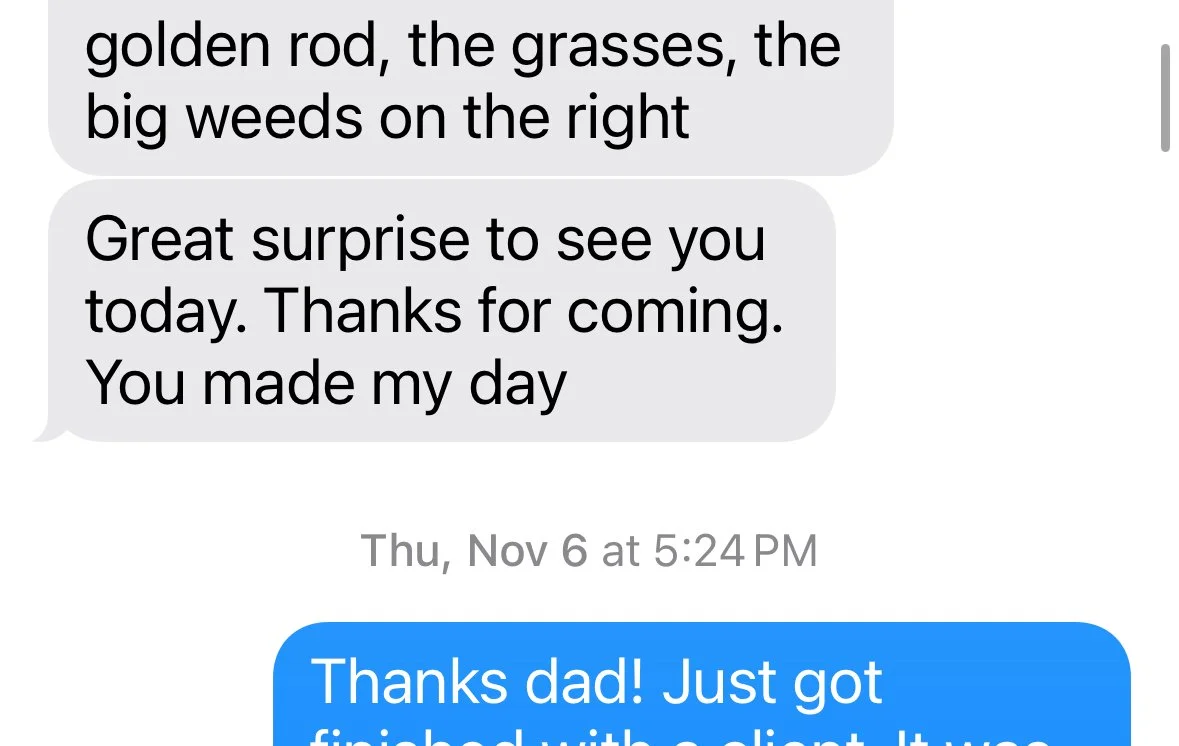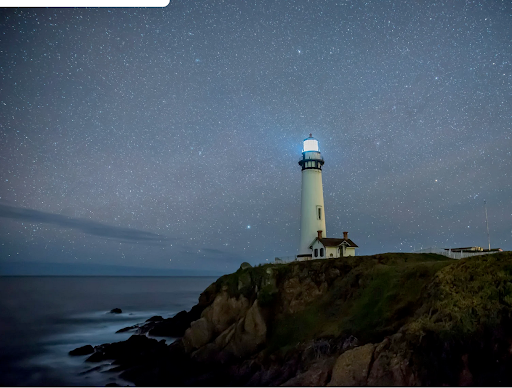The Hidden Story Underneath My Story
How a farm and some watercolor paints became the most personally meaningful blog entry to date.
Kuerner Farm. Chadds Ford, PA.
Creek Road stretches along the Brandywine River. It's one of my favorite drives in Chester County. I take this road on purpose, especially this time of year. Today, the sun shimmered through the branches of Autumn-brushed oak and towering sycamore trees, setting the ripples of the river into a dance of sparkle.
There’s really no way to describe it.
As I drove those curves, the gusty wind tossed the golden-rust, and sunset-yellowed leaves everywhere, spinning in a swirl about my car in a flutter of delight.
The Brandywine Valley is like one long river of song.
When I made that right-hand turn onto Ring Road, the magic and mystery of the Kuerner Farm began to enchant me like the leaves, gathering up the scattered pieces of me into one quiet soul. All the consternation, the constant string of bad news streaming out like an electric current of chaos, began to fade out of range and disappear…
…all I could hear was the call of the red-bellied woodpecker carried down by the wind from the treeline up beyond the hill.
Kuerner Farm owns a small place in me. It grounds me. For years, stories about the farm have been retold onto the pages and paragraphs of my life. My father speaks of Andrew Wyeth like people speak of neighbors or long-time friends, down to the manners, down to secrets. As much as I know the land our home sat on down Timberlake Drive, backing to the Springton Reservoir, I know Wyeth Country.
Often, my father would set up his paints on the coffee table in our living room and catch the perfect light shining in from the wall of picture windows behind the couch. Foam core board on his lap, a random photo he took from some farm in the area, and a row of paint brushes to choose from. Unexpectedly, in 2009, my father began to take his paints from the living room at Timberlake to the fields and farms in Chester County. He would regularly set up under the wide blue-gray sky and sit in the middle of tall grassy fields. He discovered Plein Air painting classes at the Kuerner Farm in 2014, and he has been going ever since.
Lucky for me, now I wander around this ethereal place; I get quiet and give it space to speak. After walking around, pausing to listen to the birds, smelling the fresh air, and taking a peek in that legendary barn, I identify that ideal spot to set up my chair, spray down my palette, and face the fear of starting a new painting. Autumn inspires; it is my favorite time to paint there.
Week after week, the farm begins to change. The light shifts, cold nights start bringing the changes to the leaves on the sugar maple and black cherry trees, cattails, and bright marshy green reeds that shoot up around the pond every which way dry out and turn the most stunning mix of muted brown, honey yellow, and mulberry red. Likewise, the endless, undulating hills fade from sap green to yellow ochre. The barn swallows, who take over the property, scatter south in September, and just like that, the juncos arrive.
Karl and my Dad
Today was the last day of the fall class. Karl, our teacher and friend, grew up on this working farm; he is as much a part of its bone structure as the beams in the barn. He makes his rounds to each artist and gives us just enough to see with more clarity and paint with more confidence.
Often, between his corny jokes 🥸, he will say something or quote someone, whether Robert Henri, Andrew Wyeth, or George Harrison…I grab my pencil, “Say it again, Karl,” as I scribble in my sketchbook.
“Painting is about seeing,” he often says.
And yet beyond the paints and paper, I have been learning to see.
Given my inconsistent schedule, Karl lets me come any day in the rotation that works. My father now drives an hour from Lancaster County to Chadds Ford each Thursday. In this 8-week class, there have been only a few classes when we have overlapped. This last Thursday fell on the tail end of some chaotic and crammed weeks for me; I felt a bit behind in matters of life. I was weary and could use the time at home.
But I am learning to see, to notice, to pay attention…to take a minute and get underneath things…to care about the essential things. Midlife has this kind of potential, I’ve noticed.
“I want to be there with my Dad,” I thought…
So, quickly, I gathered my key brushes, loaded my palette, paper towels, and water…threw my chair into the car, grabbed my Wendell Berry poems, coffee, and the painting I had labored over the last few weeks.
I took off and turned right onto Creek Road.
I pulled into the farm and parked in the field where I have been working the last few weeks. It was cold, the wind blew the trees left and right in slow motion, the wild brush around the pond had been cut back; it looked like a winter Wyeth landscape. I stirred with gratitude, “How is it I get to be here…” A small flock of Canada geese preened around the pond, I stared as my heart swelled.
Before setting up, I trekked through the field and made my way up to the farmhouse, I saw my father in the distance rambling up the path, backpack on, chair in hand, and his favorite Snoopy hat, compliments of one of my nephews. Most of the artists that day found spots to work on their paintings in the warmth of the house; my father joined them. Thinking I wasn’t coming, I stepped around the corner, and my dad returned a big smile when he saw me.
“I didn’t know you were coming!”
“I didn’t think I was, but I changed my mind.”
“You aren’t sitting in the field, are you? It’s too cold.”
I responded with confidence, “Yes! I have to be outside, and the geese are there to keep me company while I freeze.”
Besides, I always tell Karl I am making sure he gets his 10,000 steps in 🙂.
There I was! Out in the freezing wind! My Dad grabbed this shot.
It made so much sense. The last class of the year. A cold Autumn day. Being there to close it out at our favorite spot together, the place that has awakened me; a gift from my father.
The long list of waiting things could wait another day. What I’m more aware of than ever is that there is a story continually taking shape; when I settle down and listen to my life, I know what to do.
To state it plainly, I have not been an easy daughter. Parts of my father’s hard childhood collided with my emotional, formative self and I put up walls. I hated them. I knew they were there and I wanted to hit the button that would make them disappear. But God doesn’t have an Amazon method to healing. He is deliberate and intentional, creative and patient. And I am a creature, not the Creator. So on we went and little did I know a paintbrush would be the thing.
Without a scrap of pressure or guilt, my father has invited me into the world of the Kuerner Farm, into Wyeth stories, and subsequently, watercolor painting. When I am visiting my parents’ house, it is rare when he doesn’t say, “Bring your sketchbook,” or send me home with an idea about how to paint stone in a wall, or give me a clipping of a bird photograph to inspire me, a paint brush, or a new Daniel Smith color to try. He has wooed me into the magic of it all. But there is one thing he has said a number of times that has set me in motion more than anything else,
I never had this chance [to paint] with my mother, so I don’t want to miss doing this for you…It wasn’t until after she died that I picked up her watercolor palette and started to paint.
My precious grandmother ended her own life when I was about six years old. It’s a crack in the center of my story; it was a landmine explosion in my dad’s. She was a stunning woman, and a gifted artist…oil and watercolor. On my wall hang many and varied pieces of hers; they are sacred and I am proud to highlight them to friends who visit. I never got to take in her magic firsthand. But I do bear her name, and I’m glad I do.
Like many artists, she lived in the cross section of pain and beauty. She felt things deeply and carried a heaviness inside, but she had eyes to see. Recently, I have been thinking about what it means that I get to carry a part of her into my own storyline. My days used to be motivated by a broad and big impact. It wasn’t wrong; my mother taught me to invest in people, to offer presence to those who felt unseen. Over 20 young women I mentored walked out ahead of Scott and me at my wedding, the most meaningful part of my single years—spiritual children, and they still matter to me.
But caring for my family didn’t get the same press. There was no dopamine hit when my mom needed help cleaning out the pantry or my dad wanted to take me on a drive along Goshen Road to find old farms and spring houses to paint. I would roll my eyes and act uninterested. Yet in those moments, bits of my grandmother stirred inside, bits of my father, too. Their lives have shown up in my life prominently these days.
Personal transformation often comes hard; it may feel like a sucker punch, initially, but Life smooths out the rough edges by degrees. I left a 20 year teaching career in 2016, burned out and out of sorts. Oddly, the disorientation spun me into a new direction of discovery. God’s grace strips off those buttoned-up layers that have kept us hidden, that false self of protection, and gives us our humanness back. He will resurrect the orphaned parts of us, the design of us that gets clouded by all the grasping and proving. The delicate seeds of simplicity, sincerity, and gentleness will find their way to the surface, and, in the end, we know we had nothing to do with it.
I will always feel the pull between ego and letting it all go. Ultimately, I’ll have to trust in God’s commitment to my transformation since my pattern is to drift off the rails into the kingdom of the self. God, help me.
And as Paul, the Apostle said, “He who calls you is faithful and He will do it.”
Sitting in the field that day, cold but fully awake to my life, I could see what was happening. The hard things are being reshaped. The sorrow in the story is being retold with hope. My part in the narrative has the potential to redirect what the enemy aimed to cut short at darkness and death. And this was not just between my Dad and me, the mystery of God’s work was rewriting the tragedy of my grandmother’s death—and this was what I was noticing for the first time.
“I never got to paint with my mother, so I want to paint with you…”
Theologian NT Wright says it best,
The point of the resurrection…is that the present bodily life is not valueless just because it will die…What you do in the present—by painting, preaching, singing, sewing, praying, teaching, building hospitals, digging wells, campaigning for justice, writing poems, caring for the needy, loving your neighbor as yourself—will last into God's future. These activities are not simply ways of making the present life a little less beastly, a little more bearable, until the day when we leave it behind altogether (as the hymn so mistakenly puts it…). They are part of what we may call building God's kingdom [which is happening in the now].
What unfolds now matters for what will be. I believe that. Heaven breaks through all the time. The reconstruction of things is not a “one day” thing, it is an everyday thing. And why would it be a surprise that God would use a paintbrush, cold-pressed paper, and a watercolor palette to bring about new things? Furthermore, how creative of Him to use the setting of a farm where Andrew Wyeth spent so many hours, and Karl, who has become a favorite household name, as our companion. We can’t predict how redemption will slowly make its way into our story, no matter how hard we try. We can’t manage and manipulate the narrative; we wake up and live attentively to what is already happening. We cooperate. We paint.
And as we live day after day, after normal day, darkness is overcome by the light.
“God speaks to us, I would say, much more often than we realize or than we choose to realize. Before the sun sets every evening, he speaks to each of us in an intensely personal and unmistakable way. His message is not written out in starlight, which in the long run would make no difference; rather, it is written out for each of us in the humdrum, helter-skelter events of each day; it is a message that in the long run might just make all the difference.
Who knows what he will say to me today or to you today or into the midst of what kind of unlikely moment he will choose to say it. Not knowing is what makes today a holy mystery, as every day is a holy mystery.”
Not quite finished, but enjoying it as I go! Thanks, Karl. Thanks, Dad. This one is dedicated to you two.
“Dawn, don’t try. Just paint. Go wild with it,” Karl says, “Be the genius you already are.”
Dawn’s Advent Series: Stewarding the Night
One of my favorite writing rhythms each year is to sit in the mystery of Advent and allow the Spirit to speak, to reveal the goodness tucked away, and often lost, during the Christmas season.
Early each Sunday morning I will send out a short reflection. This includes the four Sundays in Advent, as well as a few bonus reflections for Christmas and New Year’s.
If you are not a subscriber already, please sign up below.







